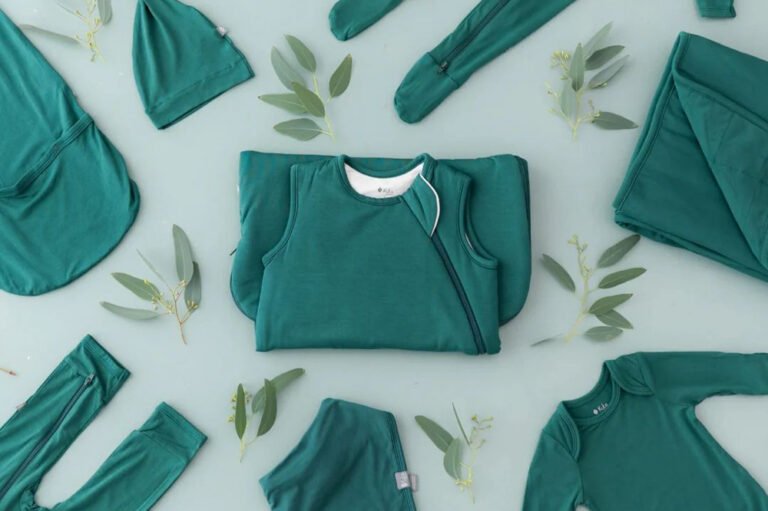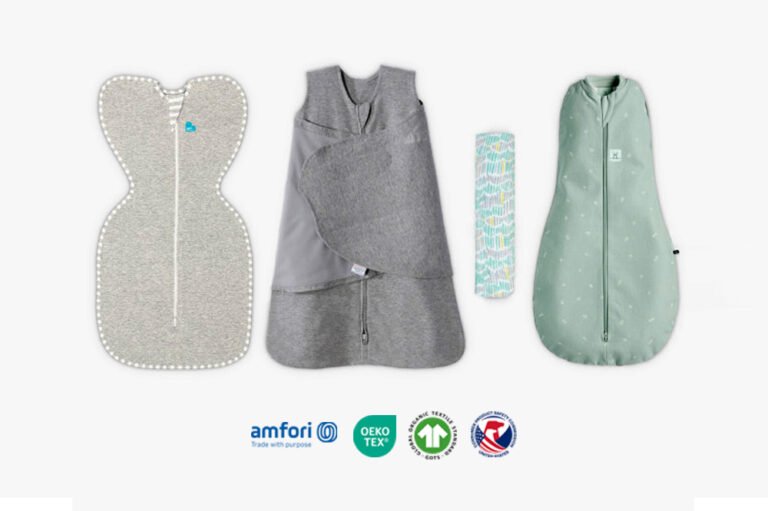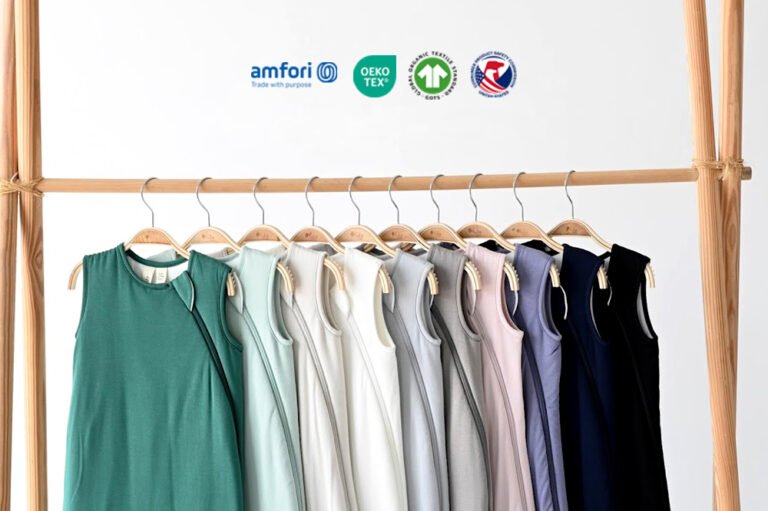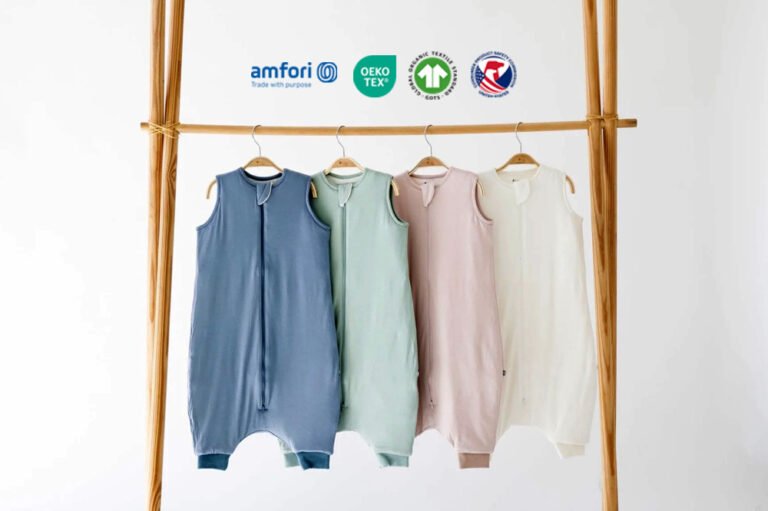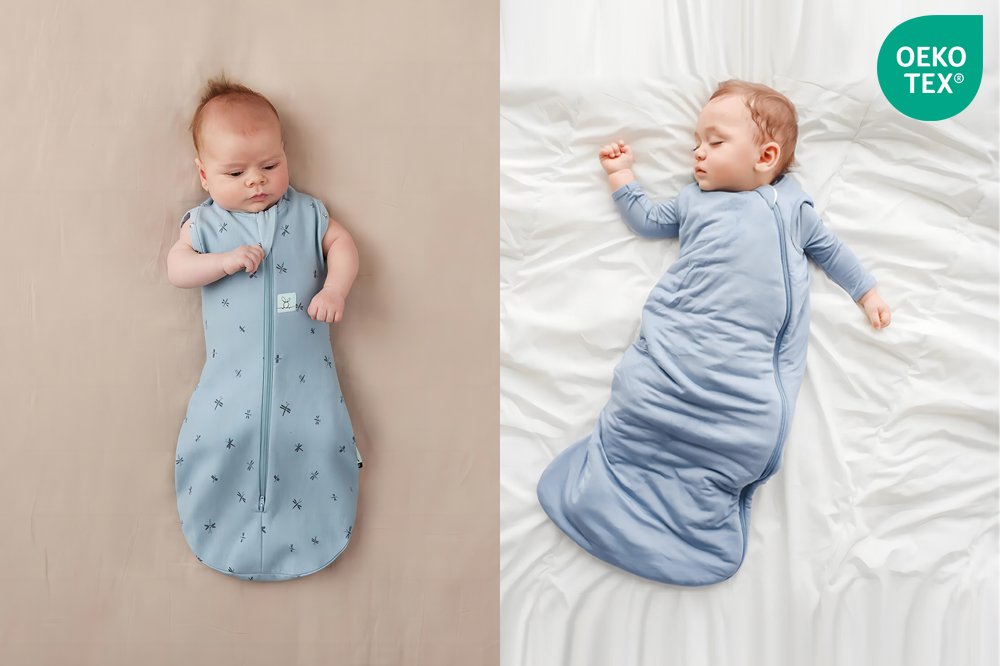
When it comes to ensuring your baby gets a good night's sleep, the fabric of their sleeping bag can make a world of difference. Organic cotton and bamboo are two popular choices, each with its unique benefits and drawbacks. But which one is truly the best for your little one? Let's dive in and explore both fabrics in detail.
What is Organic Cotton?
Organic cotton is grown without synthetic pesticides, fertilizers, or genetically modified organisms (GMOs). This eco-friendly approach not only benefits the environment but also results in a softer and safer fabric for your baby. The production process of organic cotton involves using natural farming methods, which promote soil health and reduce water usage.
Benefits of Organic Cotton
Natural and Safe: Free from harmful chemicals, making it ideal for sensitive baby skin.
Soft and Breathable: Provides a cozy and comfortable feel.
Durable: Known for its strength and longevity.
Environmentally Friendly: Sustainable farming practices make it a greener choice.
What is Bamboo Fabric?
Bamboo fabric is derived from the bamboo plant through a process that breaks down the bamboo pulp into fibers. These fibers are then spun into a soft, silky fabric that is gaining popularity for baby products. Bamboo is known for its rapid growth and minimal need for pesticides, making it an eco-conscious option.
Benefits of Bamboo Fabric
Bamboo fabric offers several appealing benefits:
Super Soft: Often compared to silk in terms of softness.
Hypoallergenic: Gentle on sensitive skin, reducing the risk of irritation.
Moisture-Wicking: Keeps babies dry and comfortable by absorbing moisture.
Antibacterial: Naturally resistant to bacteria and odors.
Comparison of Organic Cotton and Bamboo Fabric
Environmental Impact
Organic Cotton: While organic cotton farming uses less water and avoids harmful chemicals, it still requires significant land and resources.
Bamboo: Bamboo grows quickly and doesn't require pesticides, making it a more sustainable option. However, the processing of bamboo into fabric can involve chemical treatments that may impact its eco-friendliness.
Softness and Comfort
Organic Cotton: Soft and breathable, providing a cozy environment for babies.
Bamboo Fabric: Incredibly soft, often likened to cashmere, and highly breathable, ensuring maximum comfort.
Durability
Organic Cotton: Known for its durability and ability to withstand repeated washing.
Bamboo Fabric: Durable but can be prone to pilling over time if not cared for properly
Hypoallergenic Properties
Organic Cotton: Naturally hypoallergenic, reducing the risk of skin irritations.
Bamboo Fabric: Also hypoallergenic and gentle on sensitive skin, often a preferred choice for babies with allergies.
Moisture-Wicking Abilities
Organic Cotton: Absorbs moisture well but may not dry as quickly.
Bamboo Fabric: Excellent moisture-wicking properties, keeping babies dry and comfortable.
Cost Comparison
Organic Cotton Baby Sleeping Bags: Typically more affordable than bamboo but still can be on the pricier side compared to regular cotton.
Bamboo Baby Sleeping Bags: Often more expensive due to the complex processing methods involved.
Ease of Care
Organic Cotton: Easy to wash and maintain, typically machine washable and durable.
Bamboo Fabric: Requires more delicate care to maintain its softness and prevent pilling, usually also machine washable but may need gentle cycles and air drying.
Sustainability and Ethical Considerations
Organic Cotton: Supports sustainable farming practices and fair labor conditions, often certified by organizations like GOTS (Global Organic Textile Standard).
Bamboo Fabric: Bamboo is highly renewable and requires fewer pesticides. However, the chemical processing involved in turning bamboo into fabric can sometimes negate its environmental benefits.
Consumer Reviews and Experiences
Parents' Opinions on Organic Cotton Sleeping Bags
Many parents appreciate the softness, durability, and natural benefits of organic cotton sleeping bags. They often note that these bags are breathable and gentle on their babies' skin, making them a trusted choice.
Parents' Opinions on Bamboo Sleeping Bags
Bamboo sleeping bags receive high praise for their luxurious softness and excellent moisture-wicking properties. Parents of babies with sensitive skin or allergies often prefer bamboo for its hypoallergenic qualities.
Making the Decision: Which is Best for Your Baby?
Choosing between organic cotton and bamboo ultimately comes down to personal preferences and priorities. Consider the following factors:
Skin Sensitivity: If your baby has highly sensitive skin, both fabrics are good options, but bamboo may offer an extra level of softness.
Climate: For warmer climates, bamboo's moisture-wicking abilities might be more beneficial.
Sustainability Concerns: If environmental impact is your top priority, weigh the pros and cons of each fabric's production process.
Budget: Organic cotton tends to be more affordable, but bamboo offers a luxurious feel that might justify the extra cost for some parents.
Conclusion
In the end, both organic cotton and bamboo are excellent choices for baby sleeping bags, each with its unique benefits. Organic cotton is a safe, durable, and environmentally friendly option, while bamboo offers unmatched softness and excellent moisture-wicking properties. By considering your baby's specific needs and your personal priorities, you can make the best choice for your little one.
FAQs
Is bamboo fabric safe for babies?
Yes, bamboo fabric is safe for babies. It is hypoallergenic, soft, and free from harsh chemicals, making it an excellent choice for sensitive skin.
How does organic cotton compare to regular cotton?
Organic cotton is grown without synthetic pesticides and fertilizers, making it safer and more environmentally friendly than regular cotton. It is also softer and gentler on the skin.
Can bamboo fabric be machine washed?
Yes, bamboo fabric can be machine washed. However, it is recommended to use a gentle cycle and avoid harsh detergents to maintain its softness and prevent pilling.
Are there any downsides to using bamboo fabric for baby products?
The primary downside of bamboo fabric is its cost and the need for more delicate care to maintain its quality. Additionally, the chemical processing involved in its production can be a concern for some environmentally conscious parents
Which fabric is better for warm climates?
Bamboo fabric is better for warm climates due to its superior moisture-wicking abilities, which help keep babies dry and comfortable in hot weather.


